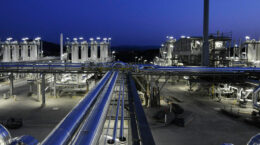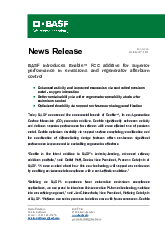BASF introduces Enable™ FCC additive for superior performance in emissions and regenerator afterburn control
- Enhanced activity and improved economics via controlled precious metal - oxygen interaction
- Better sustainability via wider regenerator operability window for emissions control
- Optimized durability via support surface morphology modification
October 6, 2021 - Today BASF announced the commercial launch of Enable™, its next-generation Carbon Monoxide (CO) promoter additive. Enable significantly enhances activity and delivers superior performance for refiners with more efficient use of precious metal. Enable optimizes durability via support surface morphology modification and the combination of differentiating design features offers customers significant performance improvement in controlling regenerator afterburn.
“Enable is the latest addition to BASF’s industry-leading, advanced refinery additives portfolio,” said Detlef Ruff, Senior Vice President, Process Catalysts at BASF. “We are excited about how this new technology will support our customers by enabling environmental compliance with a cost-effective solution.”
“Building on BASF’s experience from automotive emissions compliance applications, we are proud to introduce this innovative Pt-based technology solution into our refining segment,” said Jim Chirumbole, Vice President, Refining Catalysts at BASF. “Refiners are under pressure to deliver more with fewer resources. Enable accomplishes just that, combining economic and environmental benefits with better CO conversion at lower addition rates and a more efficient use of precious metals.”
Receive the latest press releases from BASF via WhatsApp on your smartphone or tablet. Register for our news service at http://basf.com/whatsapp.
Kerstin Hoffmann
Media Relations
BASF SE
67056 Ludwigshafen
http://www.basf.com
+49 621 60-29875
Send email



